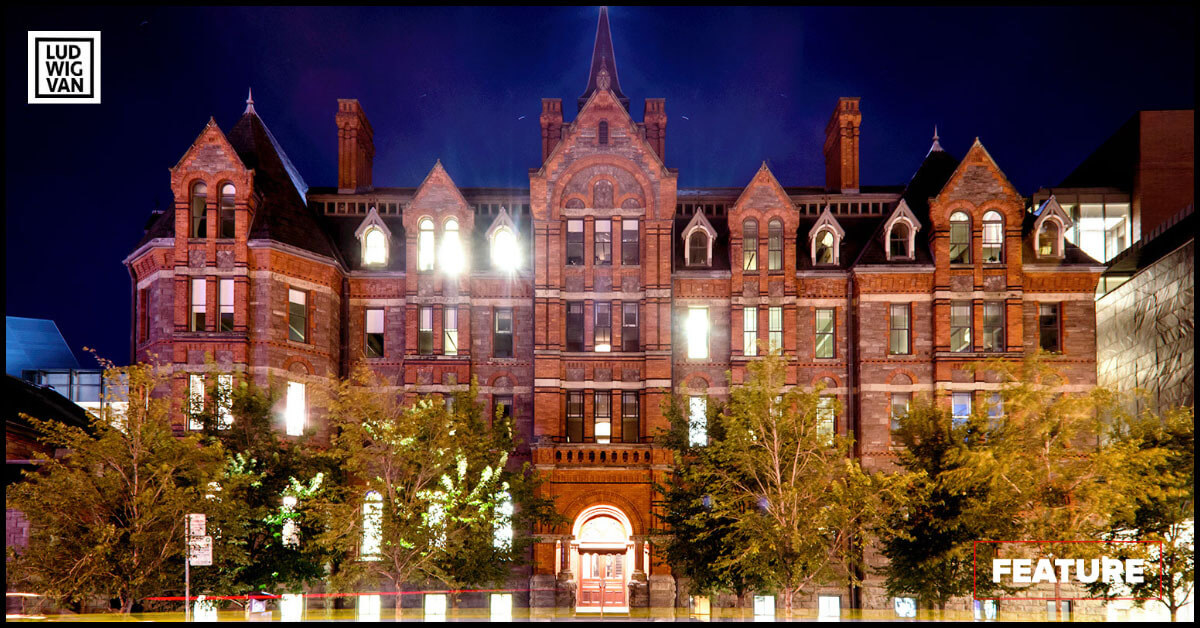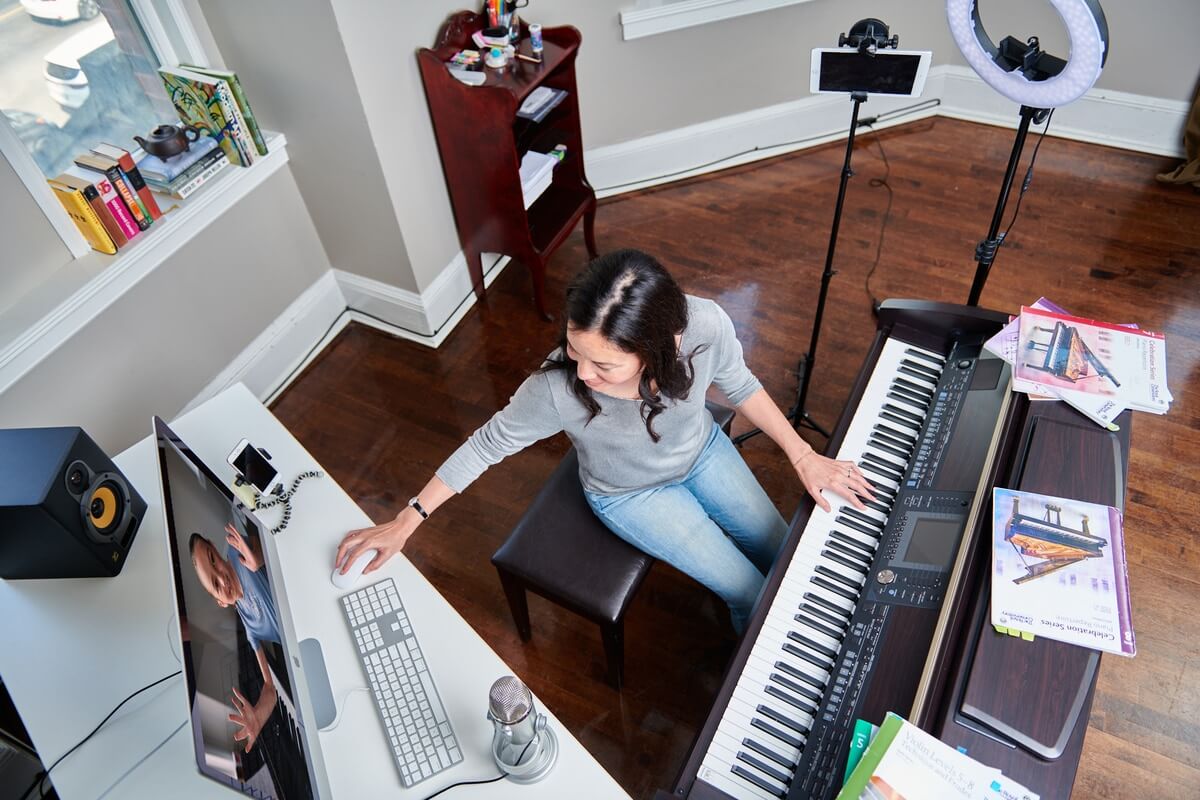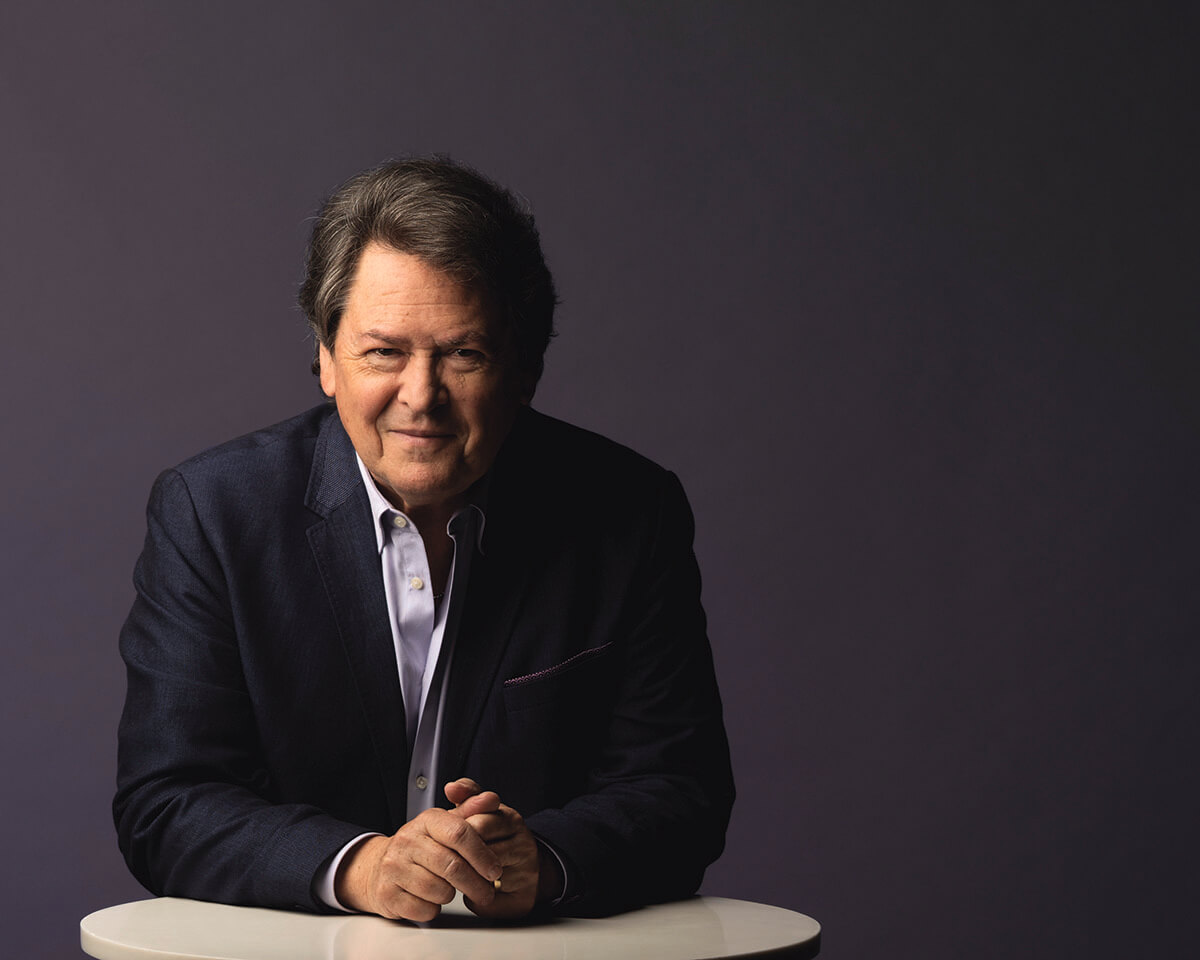
It’s safe to say that the venerable Royal Conservatory has weathered some storms throughout its 135-year history. But no one could have predicted a once-in-a-century global pandemic that saw them virtually re-invent itself.
“We’re still here,” Dr. Peter Simon, now notably in his 30th year as President and CEO states during a telephone interview from his Bloor Street office. “Right away, our absolute focus became finding a way to keep the teaching of music intact in this national system of ours. The infrastructure is private music teachers […] it’s not institutions and certainly not the public education system, so maintaining that became the basis upon which all our decisions were made,” he explains of the roughly 30,000 independent teachers associated with the RCM, boasting around 500,000 students scattered throughout Canada and the US.
“We’re still here.”
Since Simon’s appointment in 1991, he spearheaded a dramatic transformation of the RCM, culminating in the completion of the TELUS Centre for Performance and Learning, the opening of world-class Koerner Hall in 2009 and the formation of a new Performing Arts Division. He also created the life-changing Learning Through the Arts program in 1994, and founded the internationally recognized Glenn Gould School in 1997. Simon is now focused on guiding the pillar of Canada’s private music education system into a post-pandemic age, as arguably the largest overhaul in its illustrious history.
Some of his decisions have been hard pivoting RCM programming to an online format. It now offers online pedagogical/professional development courses including its highly interactive six-module “RCM Teaching Online Course,” augmented by its own RCM-produced “How to Teach Music Online” webinar series for shell-shocked teachers still deeply rattled from COVID-19 related lockdowns that saw entire studios evaporating literally overnight.
Students understandably vanished into the ether for a variety or reasons, with a recent study showing that nearly one in three teachers experienced a 50 percent income loss as a direct result of the pandemic. Many in the proverbial gig economy have consequently been getting by with the support of Canadian federal emergency funding, including the now-defunct Canadian Emergency Response Benefit (CERB) and its offspring, the Canadian Recovery Benefit (CRB) that winds down this fall.

Another new digital channel, RoyalConservatory.Live launched in April 2021, features streamed online concerts and events recorded in Koerner Hall to provide further inspiration to both teachers and their students adjusting to life through pixelated screens.
A newly minted interview series Music of my Life, featuring internationally renowned guest artists is also available through the channel, in addition to other already established online offerings including the popular “Piano Teaching Courses” for beginner, intermediate and advanced levels, as well as the intriguing “6Social” professional learning program supporting social innovation initiatives in the classroom, created through the Learning Through the Arts division.
Another top priority of Simon’s became creating ways for pupils to complete their year and take theoretical and practical exams through another one of his brainchildren — the now one-year-old RCM Remote Examinations fuelled by the power of digital technology. Examiners also needed to be trained; teachers brought up to speed and students convinced that remote exams were even doable as viable options.
With now over 60,000 students having taken online practical and theoretical exams, it became a sink-or-swim moment testing RCM’s ability to keep anxious students engaged and motivated.
One almost prophetic advantage was that RCM had started developing a digital framework, including beta testing programs six months before the first wave hit in March 2020. This head-start allowed them to segue more naturally into an extensive, all-encompassing system.
But it hasn’t been smooth sailing for everyone, from students trying to learn tricky scales through pixelated tablet screens, to parents holding their breath that their Wifi connections would hold for their budding Beethovens.
“Nobody had ever done this before. Our teachers had never done this. We’ve never done it before, but we’re pretty sure if we didn’t find a way, then a substantial number of students would be dropping out,” Simon says, adding that many on his own team were justifiably nervous. One year later, he attests most have been pleasantly surprised by the positive results, with the RCM’s ongoing, extensive research studies indicating that ever-resilient students have proven to be less nervous taking practical exams from the comfort of their own homes.
It’s been a particular boon for pianists required to quickly adapt to varying keyboard actions without (literally) missing a beat during recitals and exams. RCM remote exams now mean they can play on their own tried-and-true, familiar instruments, which has become a particularly useful advantage for settling stage jitters, and for younger, more inexperienced players — more of those increasingly prevalent silver linings.
“We’ve never done it before, but we’re pretty sure if we didn’t find a way, then a substantial number of students would be dropping out.”
Another important tool in Simon’s decision-making kit has been an ongoing series of online teacher surveys, allowing the RCM to regularly take the pulse of teachers from coast to coast to coast, assess their hopes, fears, and frankly, stark anxieties about teaching in a COVID-19 world, including the gut-punch impact the pandemic has had on their own studios.
“We’ve done a lot of research and are constantly polling teachers, and we’ve done a lot more of it this year than ever before,” Simon says. He explains the research showed that students who kept going during exams were seven times less likely to stop lessons, and that they practised about 28 percent more. “I thought that was really interesting, proving the theory of how important a goal and examination is to motivate students and move them along.”

Even pesky sound quality issues, and Internet connection quirks have not fazed the RCM. They will continue offering online exams as an alternative to an in-person experience whenever life (eventually) returns to a semblance of normalcy.
“The only way we will be able to do that is when we get any clarity with government policy,” Simon replies when asked what cues he’ll be taking to re-introduce in-person exams — hopefully August 2021. “We’ve been riding a wave since last year, and even had a concert in Koerner Hall last fall. However, the trouble for us is that we spend a lot of time getting ready for all these assumptions, and then something will either change or come up,” he says of the unprecedented challenges in planning any kind of arts event this season — or last.
Until that day comes, the “pause” has allowed the RCM to further hone its remote exams, including “incremental” improvements in sound quality, visuals, and better connectivity, Simon says, despite parents particularly in rural areas dutifully working out details including microphones and adequate lighting needs before their children’s exams. A greater ease in booking exams is also being examined with modifications pending.
“We handled things fairly well so far, but I need a 100% satisfaction rate,” the executive states. “There are still frustrations, for example if you can’t get onto the website for whatever reason to book your exam. We have to work on all that and that’s what we’re doing now.”
Despite all these challenges, Simon still feels positive about the future — pandemic or not. He smoothly jibs when asked about any possible retirement plans after serving 30 years at the helm, his eyes firmly fixed on the horizon.
“I have other projects that I’d like to finish, and goals that I want to reach first,” he responds. “I love being in this field, as it’s a very privileged position. I obviously get to go to a lot of concerts, meet a lot of great people, but as with everything else, you have the good, and then you have to really work hard to push through the harder stuff.”
Needless to say, that “harder stuff” would include a historic pandemic and the careful shepherding of the RCM these past 15 months through unprecedented challenges.
“At the end of the day, we very much believe in in-person lessons. All the digital programming can give you a greater context for teaching, but I would just hope that the connection between human beings is something we will never lose,” he says before adding a final grace note.
“In a way, we avoided disaster,” he shares. “We have come through this far better than what could have happened, and it’s because teachers were open to exploring the online option and embraced it, as well as the research that subsequently emerged.
“I’m very much an optimistic person, and it’s been a really interesting experience for everybody this past year,” he says. “Our experience has been that teachers moved quickly to adapt, and we’re all looking ahead to the future.”
#LUDWIGVAN
Get the daily arts news straight to your inbox.
Sign up for the Ludwig van Daily — classical music and opera in five minutes or less HERE.
- GUIDE | Ontario Summer Music Festivals 2022 - July 1, 2022
- INTERVIEW | Sheku Kanneh-Mason On Reuniting With Family For Toronto Debut - May 2, 2022
- FEATURE | How The Royal Conservatory Avoided A Disaster - June 9, 2021



